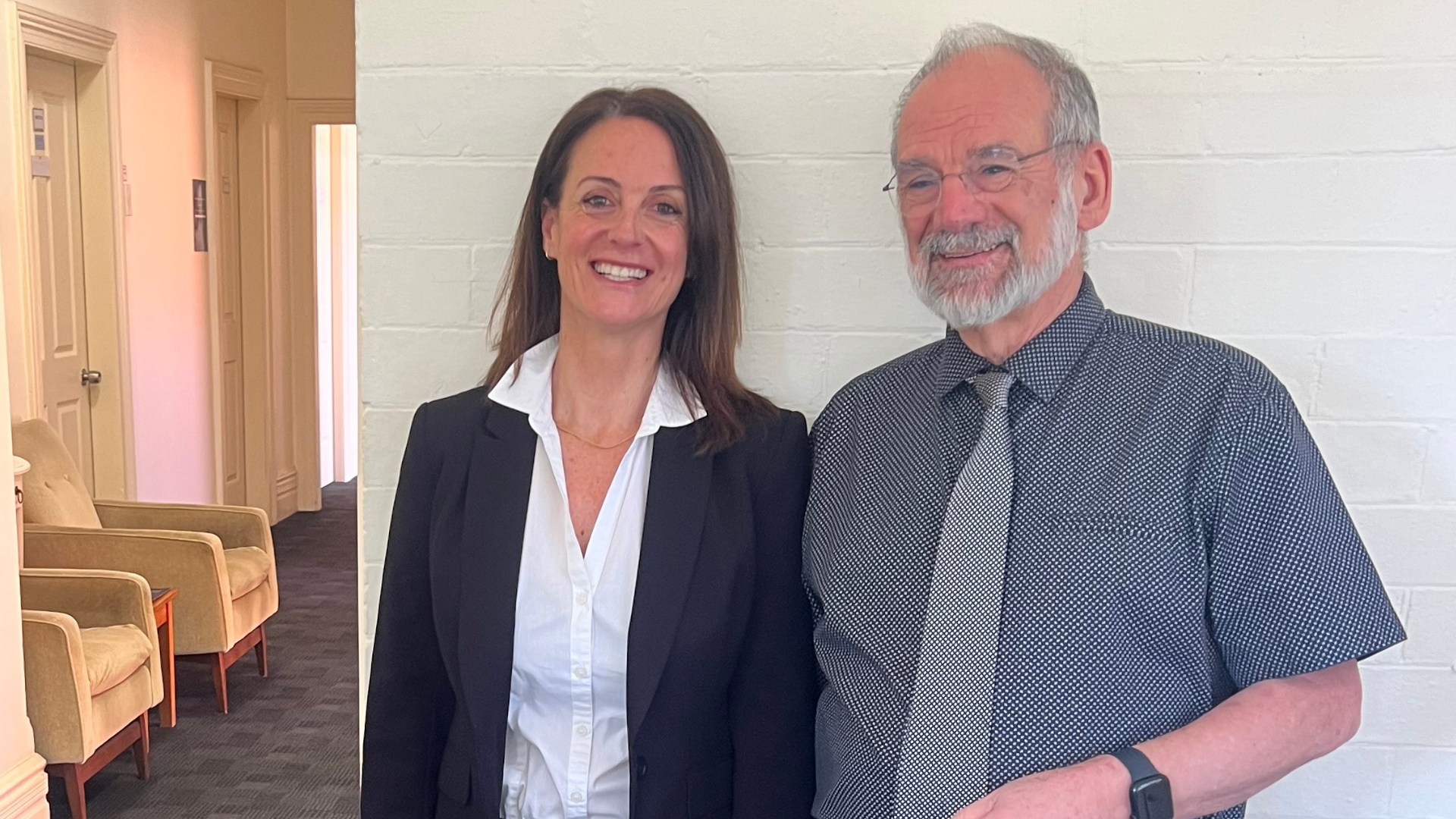A father-daughter duo from Sydney have changed the way people view and understand mental health by launching their own podcast – ‘The Psychiatrists Waiting Room.‘
The podcast features Georgia Cassimatis, a Greek Australian journalist from Sydney, and her father, Nicholas, who is a psychiatrist in Neutral Bay. They delve into the world of mental health, explaining a variety of mental illnesses in a series of episodes.
After releasing the first episode in January this year, the podcast now features a total of 12 episodes and has been so successful that it has been renewed for a season two, expected to launch in November.
“We know there’s a lot of overwhelming information out there on mental health, and people are getting confused and don’t quite understand different complex illnesses like autism and schizophrenia,” Georgia told The Greek Herald.
“We decided to kill two birds with one stone by creating a podcast that explains it all simply, using my dad as the expert, and me as the interviewer.”
The podcast explores things including Bipolar Disorder, Attention-deficit/hyperactivity disorder (ADHD), Obsessive Compulsive Disorder (OCD), Schizophrenia, Autism Spectrum Disorder, Depression and Anxiety.
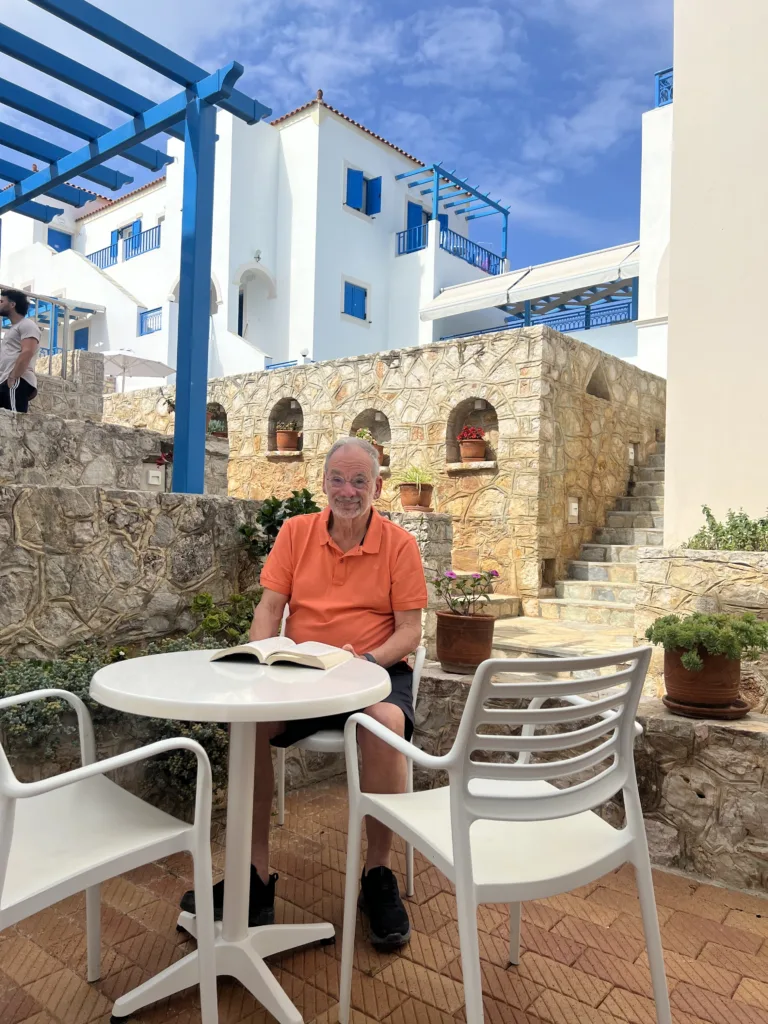
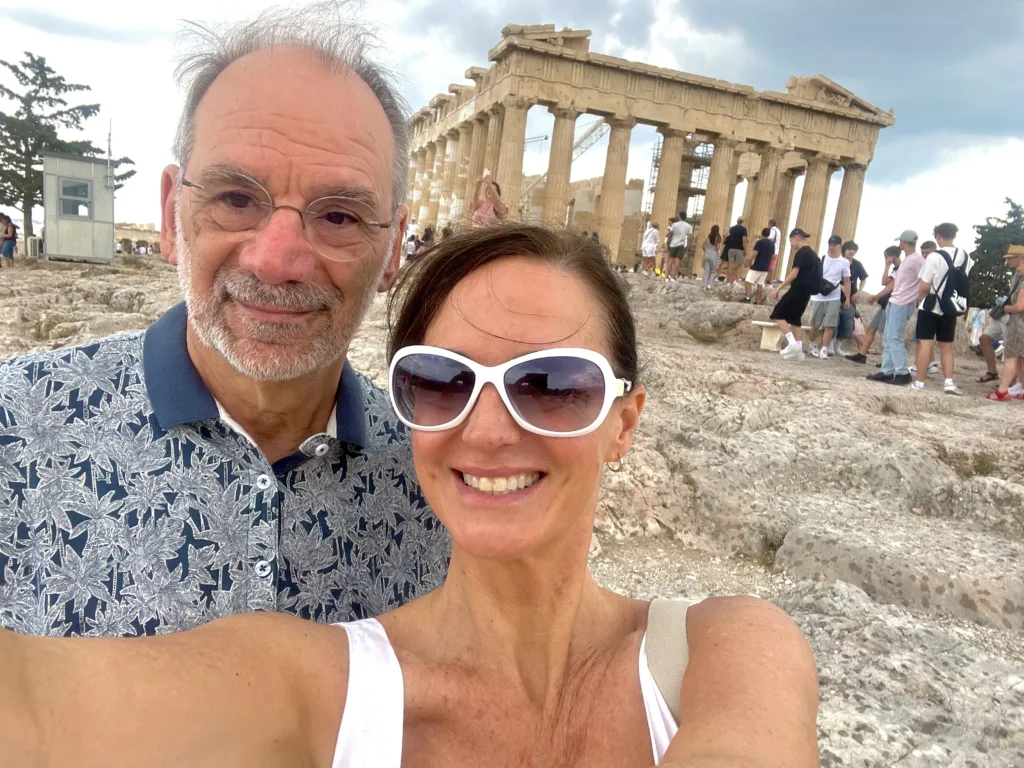
Who is the podcast for?
When Georgia and Nicholas started the podcast, they never considered the age demographic they’d be targeting.
“When I think of podcasting in general, I think the demographic for it is Gen X and under,” Georgia said.
“I would say that this podcast is for anyone aged between 18 and 80, or just anyone that is super curious about learning about mental health.”
Nicholas, a psychiatrist of more than 50 years, said he thinks the podcast appeals to the relatives and friends of patients, as well as patients themselves who are interested in mental health.
“The people it appeals to, really, are the ones who want to learn more and understand more about mental health,” he said.
Why did you do a podcast on mental health?
Georgia said growing up with a dad who is a psychiatrist, she became exposed to the “world of mental health” from a young age. At school, her peers would even approach her to pass on questions to her dad.
“People would come up to me and say, ‘can you ask your dad what this means or what this illness is, or what this problem means,’ and I thought, ‘wow dad has a really good knack for answering really complex questions quite easily and logically’,” Georgia said.
“Then, being a journalist, I knew the world of podcasting was really opening up and there are so many possibilities there, so I thought mental health would be a great topic to cover for a podcast, and I decided to team up with my dad.”
The journalist of 25 years said this wasn’t the first time she has worked alongside her dad.
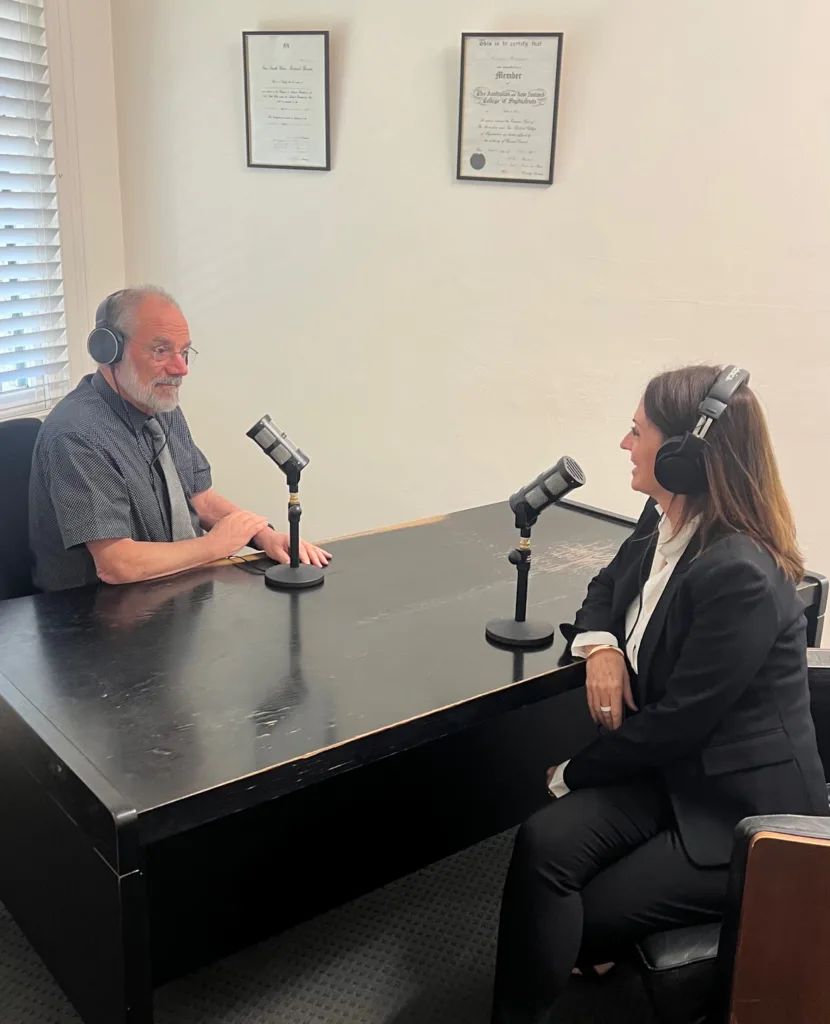
“About 10 years ago, I did a stint in magazines, and I remember there was a point where I just wasn’t sure where the direction of magazines was going, and my dad said to me, ‘look, my secretary’s left, can you just help me out as I move to a new office, I’m going into a private practice’,” Georgia said.
“So, I went and helped him set up and I ended up working with him three days a week and took on freelance journalism.
“This led to me learning all about mental health and I became really interested in it. I just found that there’s all this stuff out there in the medical world that’s just not being explained simply in the media, and that led to the podcast.”
Georgia said throughout her time as a journalist, she’s seen some major changes on the way mental health is viewed.
“I was passionate about it for years, and I still am,” she said.
“The interesting thing is, over the past 10 years, I’ve seen the world change their attitude towards mental health and it’s no longer something that’s swept under the carpet, but it’s something that’s being more and more normalised, and I feel like I’ve really seen that arc and been part of it too.”
What’s it like working with family?
Nicholas described his experience working with his daughter on the podcast as “very simple.”
“I just detach and talk to Georgia as I’m talking to you,” he said.
“She is very good at asking questions, being the journalist she is, and I’m very familiar with talking to people about mental health too, so for me, I find it very easy.
“When Georgia first suggested the podcast, I began thinking, ‘what am I getting roped into? what’s going to happen? will this cause any problems? etc,’ but the way we conducted it made me feel comfortable, like we were having a general discussion about various conditions like depression, schizophrenia, and bipolar disorder.”
Georgia said she enjoys working with her dad.
“I did have to say to him that it’s my podcast, not his, and I’m the one that’s in control, but honestly, all I had to do was give him a bit of direction and it’s been a lot easier than I thought,” she said.
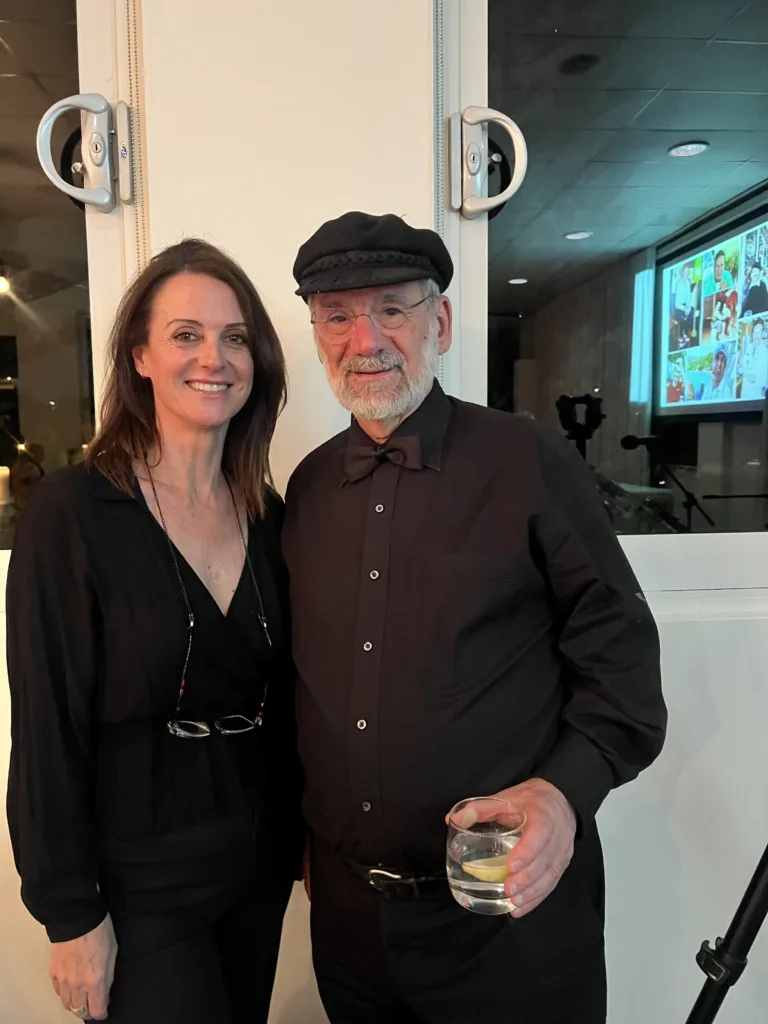
What has the response been like?
Georgia and Nicholas shared how the response to ‘The Psychiatrists Waiting Room’ has been “so lovely.”
“Everyone’s just so appreciative of what we have created,” Georgia said. “I’m just so happy that my goal has been achieved.”
Nicholas shared that he was surprised at how well the podcast has been doing.
“I’m bewildered and a little bit surprised,” he said.
“There are a million podcasts out there and we don’t have a high profile, so it’s interesting that there’s people out there googling different topics and finding our podcast and engaging with it and supporting us. It’s very gratifying.”
You can listen to ‘The Psychiatrists Waiting Room’ here: https://podcasts.apple.com/au/podcast/the-psychiatrists-waiting-room/id1726515377
